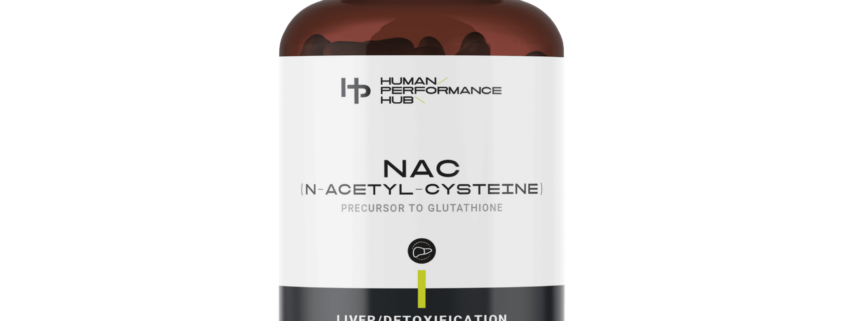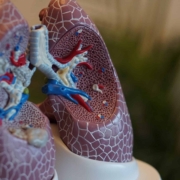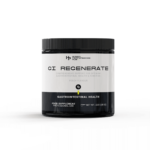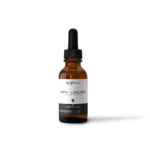An inflammation-fighting, immune-boosting compound
NAC is a compound that should definitely be on your radar. In this guide, we’ll explain exactly NAC (N-Acetyl-L-Cysteine), dive into the science, and explain how you can add NAC supplementation to your supplement stack.
What Is N-Acetyl-L-Cysteine?
N-Acetyl-L-Cysteine is a naturally occurring amino acid that plays an important role in the body’s detoxification process. It is effective in treating various conditions, including liver disease, bronchitis, and diabetes.
BUY NAC TODAYIt is also being studied for its potential to treat Alzheimer’s disease and other forms of dementia and explored as a possible treatment for a wide range of other diseases.
The Many Benefits of N-Acetyl-L-Cysteine
N-Acetyl-L-Cysteine is a powerful antioxidant that can help protect your cells from damage. This inflammation-fighting compound is beneficial for various issues, such as boosting your immune system and fighting off infection.
Proper intake of N-Acetyl-L-Cysteine can also help to boost your immune system. By improving liver function and detoxifying your body, this valuable compound helps reduce inflammation throughout your body.
N-Acetyl-L-Cysteine is also known to improve brain health and cognition. In fact, research has shown that it may even be able to halt the progression of Alzheimer’s disease.
Finally, N-Acetyl-L-Cysteine is great for overall physical wellness. It can help reduce inflammation in various parts of the body, promote better joint health, and more!
Not too bad, right? Let’s dive into the science behind N-Acetyl-L-Cysteine …
The Science: N-Acetyl-L-Cysteine
NAC is an incredibly well-researched compound with a number of clear benefits backed by science.
Liver Detoxification
As an amino acid, NAC increases GSH levels to protect against free radical accumulation and oxidative stress, which are harmful to liver detoxification. According to research, NAC protects the liver from the damaging effects of excessive alcohol consumption and acetaminophen poisoning.
Acetaminophen poisoning can cause hepatocyte necrosis, which is a result of excessive acetaldehyde buildup and oxidative damage. Due to its high affinity for mercury, lead, and cadmium, L-Cysteine can bind to them and aid in their removal. A low level of GSH makes the liver more vulnerable to damage from these toxins.
In short, NAC can ultimately contribute to healthier liver function, and such a vital organ is worth protecting at all costs.
Reproductive & Metabolic Health
As a potent antioxidant, NAC is a useful adjunctive therapy for male and female infertility and reproductive health. The results of a systematic review concluded that 600 mg of NAC significantly improved sperm motility, volume, and viscosity compared to placebo.
Another study found that supplemental NAC significantly improved insulin sensitivity in PCOS women with hyperinsulinemia. After 46 weeks of supplementation, NAC increased ovulation rate and HDL-C levels and decreased weight, BMI, fasting blood glucose, total cholesterol, LDL-C, and HOMA-IR.
As reported in a recent in-vitro study of hyperglycemia-induced cardiomyocyte injury, NAC treatment induced similar mitochondrial energetic and cellular viability effects as metformin; however, NAC had more noticeable effects in reducing ROS production in the cytosol and mitochondria, as well as increasing CoQ10 production, which was significantly reduced by high glucose exposure.
According to a systematic review exploring the ameliorative effects of NAC on obesity-associated metabolic complications, including metabolic syndrome, it limits oxidative damage, improves pro-inflammatory responses, inhibits lipid accumulation by targeting adipogenic transcription factors, enhances insulin sensitivity by enhancing PI3K and AKT pathways in both in-vitro and in-vivo models of obesity.
Who can argue with stronger sperm, healthier ovulation and a more optimal metabolic rate? Not us.
Lung Health
Lung health is paramount to high performance, whether in the gym, on the sports field, or simply being able to keep up with your kids. NAC has proven benefits for this vital organ.
N-Acetyl Cysteine breaks down the sulphide bonds that thicken mucus, and, as a result, NAC improves respiratory patterns by thinning mucus viscosity. As a mucolytic drug, NAC is used in Europe to treat chronic bronchitis (CB) aggravations and improve symptoms.
Based on a recent review, NAC was found to be well-tolerated by patients who had chronic bronchitis or chronic obstructive pulmonary disease (COPD) exacerbations and was shown to aid in mucus elimination and provide symptomatic relief from coughing, as well as resulting in significantly fewer COPD or CB aggravations, according to a meta-analysis,
The protective effect of NAC was more apparent in those with no signs of airway obstruction. Researchers found that NAC inhibited biofilm formation, disrupted pre-existing mature and infant biofilms, and reduced bacterial growth within biofilms in biofilm-related respiratory infections, including CB, COPD, and rhinosinusitis.
In addition to biofilm formation, the researchers point out that many biofilms are resistant to antibiotics, making it necessary to use non-antibiotic therapies.
According to animal studies, NAC has a significant antioxidative effect on airway hyperresponsiveness (AHR), which occurs in asthma when pro-inflammatory mediators and immune cells are consistently present in the airways.
Brain & Central Nervous System Health
We all need to protect our brain health at all costs, and in our philosophy, a healthy brain is the first step to a healthy body. It has been shown that the accumulation of mercury in the brain leads to increased lipid peroxidation, mitochondrial breakdown, depletion of GSH, and protein DNA oxidation, all of which are critical factors in the development of neurodegenerative diseases. The common link between these factors is oxidative damage.
According to a review, NAC is an effective therapy for treating neurodegenerative and mental health diseases because it crosses the blood-brain barrier, provides the brain with cysteine for glutathione production, and protects neuronal mitochondria from programmed cell death, ROS, and memory loss, as well as enhances synaptic and non-synaptic activity within the mitochondrial complex.
It has also been shown that NAC has neuroprotective effects against strokes and traumatic brain injuries (TBIs), which are mediated by its ability to counter oxidative stress, free radicals, and pro-inflammatory mediators. TBI patients treated with NAC after blast exposure had significantly improved symptoms after seven days compared to those treated with placebos.
In a pilot study, NAC supplementation for six months increased functional connectivity within the cingulate cortex in early psychosis patients compared to controls, demonstrating its effect on neuropsychiatric health. As a result, increased brain GSH through NAC supplementation may be an effective alternative to antipsychotic medications for improving functional connectivity within the brain.
A systematic review investigated NAC’s effectiveness in treating obsessive-compulsive disorder (OCD), since it modulates the amino acid glutamate. On average, 2,400 – 3,000 mg of NAC per day for 12 weeks reduced the severity of OCD symptoms with minimal adverse effects and good tolerability.
Muscle Recovery & Pain
During a strenuous workout, damaging free radicals are released as a natural result of muscular contractions. The glutathione in the body scavenges free radicals diligently, while NAC quickly restores glutathione levels to normal.
Research shows that NAC promotes muscle performance and supports efficient muscle recovery post-workout and during periods of muscle exertion because it scavenges free radicals and oxidative stress, which are related to muscle fatigue.
Oral NAC therapy significantly reduced the expression of type II collagen in chondrocytes, an indicator of osteoarthritis (OA). It inhibited ROS accumulation and proinflammatory cytokine expression in an in vivo and in vitro animal model of osteoarthritis (OA), suggesting that NAC may be an effective treatment for OA prevention.
How to Take N-Acetyl-L-Cysteine for Optimal Results
N-Acetyl-L-Cysteine is a powerful antioxidant and anti-inflammatory supplement that has a wide range of health benefits. It is most commonly taken to improve respiratory health, but it can also help to boost cognitive function, detoxify the body, and protect the liver.
The recommended dosage of NAC is 600 mg per day, but some people may need to take up to 1,200 mg per day for optimal results.
NAC is generally well tolerated, but some people may experience side effects like nausea or headaches at high doses. If you’re interested in taking NAC, talk to your doctor first to ensure it’s safe for you and determine the best dose for your needs.
Are There Any Side Effects of Taking N-Acetyl-L-Cysteine?
N-Acetyl-L-Cysteine is a powerful antioxidant that has a wide range of potential health benefits. However, like all supplements, it is important to be aware of the potential side effects before taking them.
The most common side effect of N-Acetyl-L-Cysteine is nausea, which can usually be alleviated with food. Other potential side effects include headache, dizziness, and gastrointestinal distress.
As with any supplement, it is always best to speak with a healthcare professional before taking N-Acetyl-L-Cysteine to ensure it is right for you and to avoid any possible interactions with other medications or supplements you may be taking.
Order Your N-Acetyl L-Cysteine From Human Performance Hub Today
N-Acetyl L-Cysteine supplementation helps to detoxify the body and has many other benefits, including helping to improve memory and reducing inflammation. If you’re looking for a high-quality NAC supplement, Human Performance Hub has got you covered.
BUY NAC TODAY
Further Reading
🔗 NAC / Glutathione – One of the Most Powerful Antioxidants in the Body
Our environment dictates a lot for our health; whether it be the food we eat, the air we breathe or the water we drink, it all impacts us and our health.
For many of us, the environment may put added stress on our bodies. For example, pollution in the air means we inhale all sorts of toxic chemicals, which, once in the body, can affect many systems and the body’s cells. Ultimately this affects how we function and can lead to health issues and diseases.
CONTINUE READINGConsultations
We’re always here to help. If you have any questions or want advice on nutrition, supplements or training, please book a consultation.




